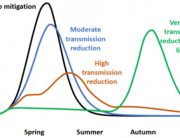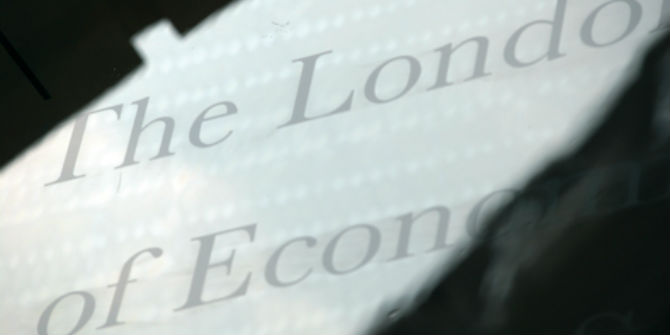With LSE widely recognised as the world’s leading specialist social science university, the MSc in Philosophy of Social Sciences is the ideal degree with which to pursue questions about human societies, and to apply philosophical reasoning to understand the nature of the social sciences themselves.
Here’s what some of our past students have said about their time spent studying for this degree:
“I joined the LSE MSc programme in Philosophy of the Social Sciences because I believed the programme was a unique opportunity to learn how to use philosophical tools to criticise and strengthen economic theory. After graduating I can honestly say that I was right; but I can also add that studying at LSE gave me a lot more than the knowledge of how to combine Philosophy and Economics.”
Kamilla Buchter (Kamilla is currently studying for our Philosophy MPhil/PhD)
“The LSE provided a forum wherein I could develop and crystallize my own thinking about the logic- and limits- of international development and human rights more generally. More to the point, though, it helped to re-frame my interest into a rigorous analytic register that clarified my own assumptions and helped me develop in several related areas of philosophy (including philosophy of language, action theory and philosophy of the social science).”
Charles Djordjevic
Philosophy of the Social Sciences
Anthropology, archeology, economics, geography, history, law, linguistics, political science, psychology, social psychology, sociology — you already know what social sciences are. But how do they work? What makes them special? There are clear senses in which they differ from some of the natural sciences, such as an extremely diverse set of methods and analytic techniques, but does this make the social sciences any less scientific or objective?
These are some of the general questions philosophers of social sciences sometimes tackle. But there are more specific questions as well: Do evolutionary explanations of social phenomena provide an accurate account of why societies are the way they are, or are such explanations merely unverifiable just-so stories? What relations exist among rationality, choice, action, and interpretation?
An MSc in Philosophy of Social Sciences at LSE provides an ideal environment in which to study these and other questions, either as a means of gaining deeper insight into the philosophical underpinnings of how we understand society, or as a world-class means of preparing for further academic study.
What It’s Like
LSE consistently ranks the top programme in the world for the graduate study of philosophy of social sciences.
You’ll get a chance not only to do your coursework with some of the world’s top researchers in philosophy of the social sciences as well as some of the world’s top social scientists themselves. You’ll also be surrounded by the intellectual bustle that is so characteristic of LSE.
The department hosts a rich series of regular events of interest to philosophers of the social sciences. Each month the British Society for the Philosophy of Science hosts their regular lecture series at LSE. In addition, you will have the opportunity to enjoy cutting edge lectures on philosophy of the social sciences from two popular lecture series, the Choice Group and the Managing Severe Uncertainty project.
Our students typically form a tight social group. The Department facilitates this by hosting a number of social occasions through the year. In addition, London has a wide range of opportunities for socialising, with a great many additional philosophical activities offered by the Institute of Philosophy and the University of London, enabling enterprising students to make contact with people from other universities.
What you’ll do
LSE’s distinctive approach to philosophy of the social sciences is both continuous with the sciences and socially relevant.
In our general and specialist courses the philosophical analysis is inseparably intertwined with science, and often directly motivated by problems in the sciences. At LSE, students learn to reason with philosophical rigour, but also have the chance to learn essential scientific tools such as modern logic and probability theory.
A typical student on this programme can expect to have, for each examined course, 20 hours of lectures and 30 hours of seminars from our world-class primary academic faculty, with a guarantee that no seminar will have more than 15 students. In addition, there is 30 hours of teaching on the dissertation research and writing seminar, plus plenty of one-on-one advising and discussion time with your lecturers during office hours.
| Either: | PH405 Philosophy of the Social Sciences | Or: | PH413 Philosophy of Economics |
| Courses to the value of two units from the list of options below. Alternatively, students may take one unit from the list below and one approved outside unit, on the condition that at least one unit is a PHXXX course taught within the department. | |||
| PH418 Dissertation Seminar (non-assessed) to help prepare you to write your dissertation | |||
| PH499 Dissertation in which you work with a supervisor to write your own piece of original research in the field. Much of the writing takes place over the Summer Term. | |||
For more information about courses, see the LSE Programme Description Page and the Official Programme Regulations.
Who is suited for this degree
The MSc in Philosophy of the Social Sciences draws students from around the world. It is an ideal way to prepare for further PhD work in philosophy or a social science, and indeed a rare opportunity for students interested in academics to study with such a large number of philosophers of the social sciences. Many of our graduates thus go on to further study.
However, the rigorous analytic and scientific skills this programme provides are applicable in a range of high-level occupations, for employment in fields such as science journalism, science administration, public policy making, policy-making and medicine, in both governmental and non-governmental sectors. Strong applications that show a careful and considered interest in the fields of study for this degree stand the best chance of acceptance.
Graduate destinations

Besides going into academics, graduates from the MSc in Philosophy of the Social Sciences programme have recently gone on to hold job titles such as Associate Consultant, Business Analyst, CEO, Client Development Executive, Consultant, Investment Analyst, Journalist, Planning Officer, Public Policy Intern, Research Associate, Teacher, and Translator. Over 75% of graduates between 2010-2012 were studying or employed within 6 months of graduating, with an average full-time salary of £39,000.
Funding
All applicants for this degree will be considered for the LSE Graduate Support Scheme. For more information about funding opportunities, please visit the LSE Financial Support Office homepage.
Preparatory Reading and Booklist for Offer-Holders
A suggested booklist for offer-holders considering studying this degree is available on ReadingLists@LSE.
Application Process
Applications for our MSc degrees open around mid-October and usually close in late April. To improve your prospects, students are encouraged to apply early in the application cycle. Further information about the application process is available on the Graduate Admissions website.
For further questions, contact:
- Andrea Ledwig (Taught Programmes Manager): A.Ledwig@lse.ac.uk
- Jason Alexander (Degree Coordinator): J.Alexander@lse.ac.uk



























































































































